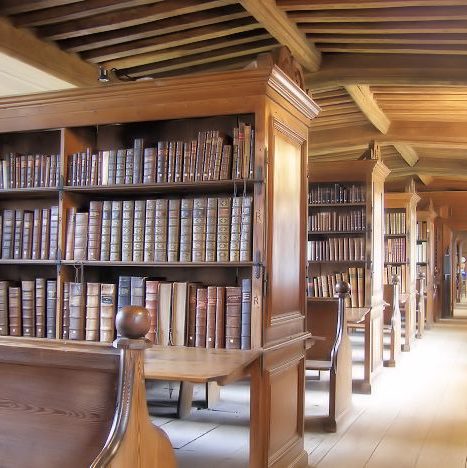
Thoughts and reflections on books by great authors, meditations, ideas and literary observations about books, the art of writing novels, poetry and essays.
Properly, we should read for power. Man reading should be man intensely alive. The book should be a ball of light in one’s hand.
Ezra Pound
A conventional good read is usually a bad read, a relaxing bath in what we know already. A true good read is surely an act of innovative creation in which we, the readers, become conspirators.
Malcolm Bradbury (1932-, British author)
Books are the legacies that a great genius leaves to mankind, which are delivered down from generation to generation as presents to the posterity of those who are yet unborn.
Joseph Addison (1672-1719, British essayist, poet, statesman)
Of all the ways of acquiring books, writing them oneself is regarded as the most praiseworthy method. Writers are really people who write books not because they are poor, but because they are dissatisfied with the books which they could buy but do not like.
Walter Benjamin (1982-1940, German critic, philosopher)
The power of a text is different when it is read from when it is copied out. Only the copied text thus commands the soul of him who is occupied with it, whereas the mere reader never discovers the new aspects of his inner self that are opened by the text, that road cut through the interior jungle forever closing behind it: because the reader follows the movement of his mind in the free flight of day-dreaming, whereas the copier submits it to command.
Walter Benjamin (1982-1940, German critic, philosopher)
Does there, I wonder, exist a being who has read all, or approximately all, that the person of average culture is supposed to have read, and that not to have read is a social sin? If such a being does exist, surely he is an old, a very old man.
Arnold Bennett (1867-1931, British novelist)
When we read a story, we inhabit it. The covers of the book are like a roof and four walls. What is to happen next will take place within the four walls of the story. And this is possible because the story’s voice makes everything its own.
John Berger (1926-, British actor, critic)
Books, books, books had found the secret of a garret-room piled high with cases in my father’s name; Piled high, packed large, – where, creeping in and out among the giant fossils of my past, like some small nimble mouse between the ribs of a mastodon, I nibbled here and there at this or that box, pulling through the gap, in heats of terror, haste, victorious joy, the first book first. And how I felt it beat under my pillow, in the morning’s dark. An hour before the sun would let me read! My books!
Elizabeth Barrett Browning (1806-1861, British poet)
Americans will listen, but they do not care to read. War and Peace must wait for the leisure of retirement, which never really comes: meanwhile it helps to furnish the living room. Blockbusting fiction is bought as furniture. Unread, it maintains its value. Read, it looks like money wasted. Cunningly, Americans know that books contain a person, and they want the person, not the book.
Anthony Burgess (1917-1993, British writer, critic)
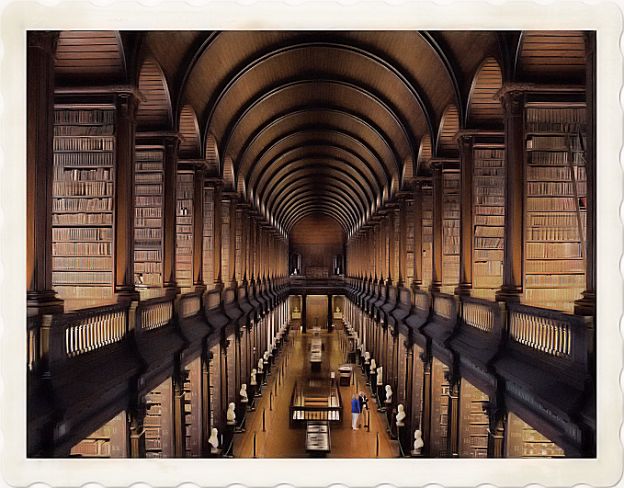
Books are masters who instruct us without rods or ferules, without words or anger, without bread or money. If you approach them, they are not asleep; if you seek them, they do not hide; if you blunder, they do not scold; if you are ignorant, they do not laugh at you.
Richard De Bury (1287-1345, British chancellor)
Readers are less and less seen as mere non-writers, the subhuman “other” or flawed derivative of the author; the lack of a pen is no longer a shameful mark of secondary status but a positively enabling space, just as within every writer can be seen to lurk, as a repressed but contaminating antithesis, a reader.
Terry Eagleton (1943-, British critic)
Surviving and thriving as a professional today demands two new approaches to the written word. First, it requires a new approach to orchestrating information, by skillfully choosing what to read and what to ignore. Second, it requires a new approach to integrating information, by reading faster and with greater comprehension.
Jimmy Calano
It is chiefly through books that we enjoy intercourse with superior minds, and these invaluable means of communication are in the reach of all. In the best books, great men talk to us, give us their most precious thoughts, and pour their souls into ours.
William Ellery Channing (1780-1842, American Unitarian minister, author)
Many books require no thought from those who read them, and for a very simple reason: they made no such demand upon those who wrote them. Those works, therefore, are the most valuable, that set our thinking faculties in the fullest operation. understand them.
Lord Clarendon
A person of mature years and ripe development, who is expecting nothing from literature but the corroboration and renewal of past ideas, may find satisfaction in a lucidity so complete as to occasion no imaginative excitement, but young and ambitious students are not content with it. They seek the excitement because they are capable of the growth that it accompanies.
Charles Horton Cooley (1864-1929, American sociologist)
The successful Accelerated Reader is able to read larger than normal “blocks” or “bites” of the printed page with each eye stop. He has accepted, without reservation, the philosophy that the most important benefit of reading is the gaining of information, ideas, mental “picture” and entertainment-not the fretting over words. He has come to the realization that words in and of themselves are for the most part insignificant.
Wade E. Cutler
A good book is the very essence of a good man. His virtues survive in it, while the foibles and faults of his actual life are forgotten. All the goodly company of the excellent and great sit around my table, or look down on me from yonder shelves, waiting patiently to answer my questions and enrich me with their wisdom. A precious book is a foretaste of immortality.
Theodore L. Cuyler (1822-1909, American pastor, author)
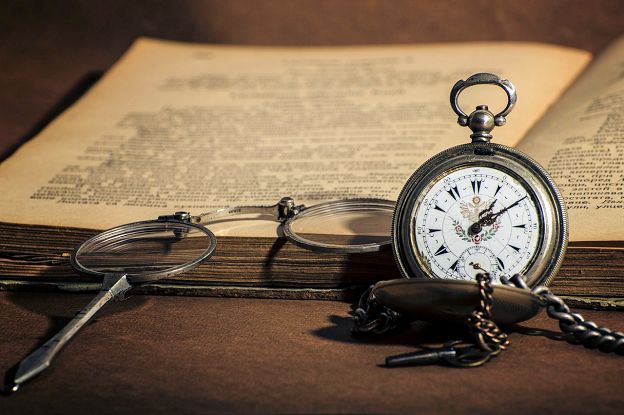
If I had my way books would not be written in English, but in an exceedingly difficult secret language that only skilled professional readers and story-tellers could interpret. Then people like you would have to go to public halls and pay good prices to hear the professionals decode and read the books aloud for you. This plan would have the advantage of scaring off all amateur authors, retired politicians, country doctors and I-Married-a-Midget writers who would not have the patience to learn the secret language.
Robertson Davies (1913-1995, Canadian novelist, journalist)
The world of books is the most remarkable creation of man. Nothing else that he builds ever lasts monuments fall; nations perish; civilization grow old and die out; new races build others. But in the world of books are volumes that have seen this happen again and again and yet live on. Still young, still as fresh as the day they were written, still telling men’s hearts, of the hearts of men centuries dead.
Clarence Day (1874-1935, American essayist)
Books are the best of things if well used; if abused, among the worst. They are good for nothing but to inspire. I had better never see a book than be warped by its attraction clean out of my own orbit, and made a satellite instead of a system.
Ralph Waldo Emerson (1803-1882, American poet, essayist)
‘Tis the good reader that makes the good book; in every book he finds passages which seem to be confidences or sides hidden from all else and unmistakably meant for his ear; the profit of books is according to the sensibility of the reader; the profound thought or passion sleeps as in a mine, until it is discovered by an equal mind and heart.
Ralph Waldo Emerson (1803-1882, American poet, essayist)
Read, read, read. Read everything – trash, classics, good and bad, and see how they do it. Just like a carpenter who works as an apprentice and studies the master. Read! You’ll absorb it. Then write. If it is good, you’ll find out. If it’s not, throw it out the window.
William Faulkner (1897-1962, American novelist)
It does not follow because many books are written by persons born in America that there exists an American literature. Books which imitate or represent the thoughts and life of Europe do not constitute an American literature. Before such can exist, an original idea must animate this nation and fresh currents of life must call into life fresh thoughts along the shore.
Margaret Witter Fuller (1810-1850, American writer, lecturer)
Learning to read has been reduced to a process of mastering a series of narrow, specific, hierarchical skills. Where armed-forces recruits learn the components of a rifle or the intricacies of close order drill “by the numbers,” recruits to reading learn its mechanics sound by sound and word by word.
Jacquelyn Gross
He that loves a book will never want a faithful friend, a wholesome counselor, a cheerful companion, an effectual comforter. By study, by reading, by thinking, one may innocently divert and pleasantly entertain himself, as in all weathers, as in all fortunes.
Sir Arthur Helps (1813-1875, British historian, novelist, essayist)
All good books are alike in that they are truer than if they had really happened and after you are finished reading one you will feel that all that happened to you and afterwards it all belongs to you; the good and the bad, the ecstasy, the remorse, and sorrow, the people and the places and how the weather was.
Ernest Hemingway (1898-1961, American writer)
Books constitute capital. A library book lasts as long as a house, for hundreds of years. It is not, then, an article of mere consumption but fairly of capital, and often in the case of professional men, setting out in life, it is their only capital.
Thomas Jefferson (1743-1826, American President (3rd))
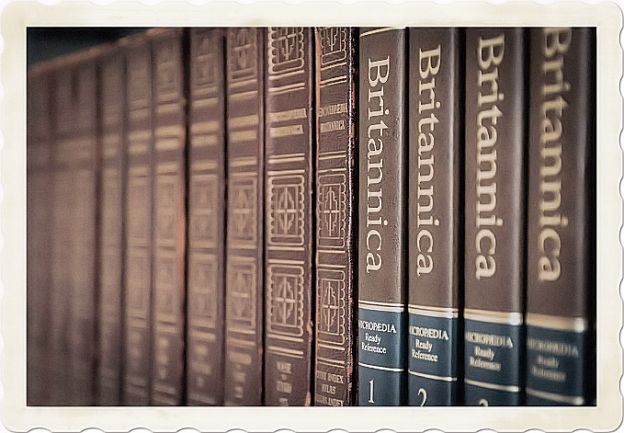
Except a living man, there is nothing more wonderful than a book! A message to us from the dead — from human souls we never saw, who lived, perhaps, thousands of miles away. And yet these, in those little sheets of paper, speak to us, arouse us, terrify us, teach us, comfort us, open their hearts to us as brothers.
Charles Kingsley (1819-1875, British author, clergyman)
We ought to reverence books; to look on them as useful and mighty things. If they are good and true, whether they are about religion, politics, farming, trade, law, or medicine, they are the message of Christ, the maker of all things — the teacher of all truth.
Charles Kingsley (1819-1875, British author, clergyman)
After all, the world is not a stage — not to me: nor a theatre: nor a show-house of any sort. And art, especially novels, are not little theatres where the reader sits aloft and watches… and sighs, commiserates, condones and smiles. That’s what you want a book to be: because it leaves you so safe and superior, with your two-dollar ticket to the show. And that’s what my books are not and never will be. Whoever reads me will be in the thick of the scrimmage, and if he doesn’t like it — if he wants a safe seat in the audience — let him read someone else.
D. H. Lawrence (1885-1930, British author)
This is not a book. This is libel, slander, defamation of character. This is not a book, in the ordinary sense of the word. No, this is a prolonged insult, a gob of spit in the face of Art, a kick in the pants to God, Man, Destiny, Time, Love, Beauty… what you will. I am going to sing for you, a little off key perhaps, but I will sing.
Henry Miller (1891-1980, American author)
Do we write books so that they shall merely be read? Don’t we also write them for employment in the household? For one that is read from start to finish, thousands are leafed through, other thousands lie motionless, others are jammed against mouse holes, thrown at rats, others are stood on, sat on, drummed on, have gingerbread baked on them or are used to light pipes.
Georg C. Lichtenberg (1742-1799, German physicist, satirist)
I feel a kind of reverence for the first books of young authors. There is so much aspiration in them, so much audacious hope and trembling fear, so much of the heart’s history, that all errors and shortcomings are for a while lost sight of in the amiable self assertion of youth.
Henry Wadsworth Longfellow (1819-1892, American poet)
A house without books is like a room without windows. No man has a right to bring up his children without surrounding them with books, if he has the means to buy them. It is a wrong to his family. Children learn to read by being in the presence of books. The love of knowledge comes with reading and grows upon it. And the love of knowledge, in a young mind, is almost always a warrant against the inferior excitement of passions and vices.
Horace Mann (1796-1859, American educator)
There are people who read too much: bibliobibuli. I know some who are constantly drunk on books, as other men are drunk on whiskey or religion. They wander through this most diverting and stimulating of worlds in a haze, seeing nothing and hearing nothing.
H. L. Mencken (1880-1956, American editor, author, critic, humorist)
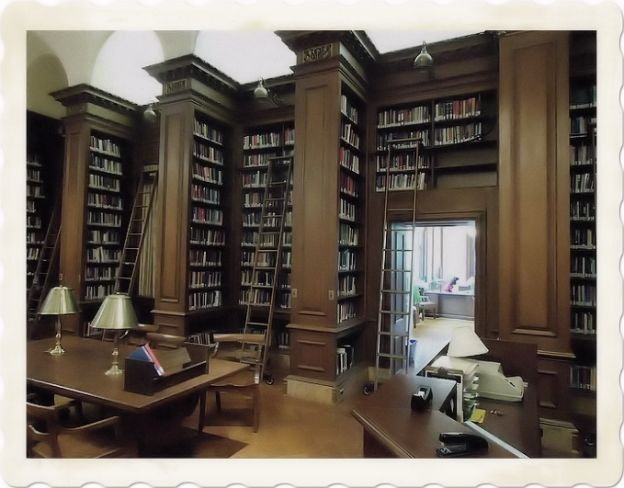
The constant habit of perusing devout books is so indispensable, that it has been termed the oil of the lamp of prayer. Too much reading, however, and too little meditation, may produce the effect of a lamp inverted; which is extinguished by the very excess of that ailment, whose property is to feed it.
Hannah More (1745-1833, British writer, reformer, philanthropist)
The books one reads in childhood, and perhaps most of all the bad and good bad books, create in one’s mind a sort of false map of the world, a series of fabulous countries into which one can retreat at odd moments throughout the rest of life, and which in some cases can survive a visit to the real countries which they are supposed to represent.
George Orwell (1903-1950, British author, “Animal Farm”)
Five daily newspapers arrive in my California driveway. The New York times and the Wall Street Journal are supplemented by three local papers. As for magazines, I read, or at least skim, Business Week, Forbes, The Economist, INC; Industry Week, Fortune. Other subscriptions include Sales and Marketing Management, Modern Health Care, Progressive Grocer, High Tech Business, and Sloan Management Review from MIT. I religiously read Business Tokyo, Asia Week, and Far Eastern Economic Review. I glance at Newsweek and Time … but I devour the New Republic, Policy Review, Foreign Affairs, The Washington Monthly, and Public Interest. How about books? A dozen or more each month.
Thomas J. Peters (1942-, American management consultant, author, lecturer)
She could give herself up to the written word as naturally as a good dancer to music or a fine swimmer to water. The only difficulty was that after finishing the last sentence she was left with a feeling at once hollow and uncomfortably full.
Jean Rhys (1894-1979, British author)
In the dark colony of night, when I consider man’s magnificent capacity for malice, madness, folly, envy, rage, and destructiveness, and I wonder whether we shall not end up as breakfast for newts and polyps, I seem to hear the muffled cries of all the words in all the books with covers closed.
Leo C. Rosten (1908-1997, Polish-born American political scientist)
The real risks for any artist are taken in pushing the work to the limits of what is possible, in the attempt to increase the sum of what it is possible to think. Books become good when they go to this edge and risk falling over it — when they endanger the artist by reason of what he has, or has not, artistically dared.
Salman Rushdie (1948-, Indian-born British author)
To use books rightly is to go to them for help; to appeal to them when our own knowledge and power fail; to be led by them into wider sight and purer conception than our own, and to receive from them the united sentence of the judges and councils of all time, against our solitary and unstable opinions.
John Ruskin (1819-1900, British critic, social theorist)
What I like best is a book that’s at least funny once in a while. What really knocks me out is a book that, when you’re all done reading it, you wish the author that wrote it was a terrific friend of yours and you could call him up on the phone whenever you felt like it. That doesn’t happen much, though.
J. D. Salinger (1919-, American author)
Without books the development of civilization would have been impossible. They are the engines of change, windows on the world, “Lighthouses” as the poet said “erected in the sea of time.” They are companions, teachers, magicians, bankers of the treasures of the mind, Books are humanity in print.
Arthur Schopenhauer (1788-1860, German philosopher)
Here, my dear Lucy, hide these books. Quick, quick! Fling “Peregrine Pickle” under the toilette — throw “Roderick Random” into the closet – put “The Innocent Adultery” into “The Whole Duty of Man”; thrust “Lord Aimworth” under the sofa! cram “Ovid” behind the bolster; there – put “The Man of Feeling” into your pocket. Now for them.
Richard Brinsley Sheridan (1751-1816, Anglo-Irish dramatist)
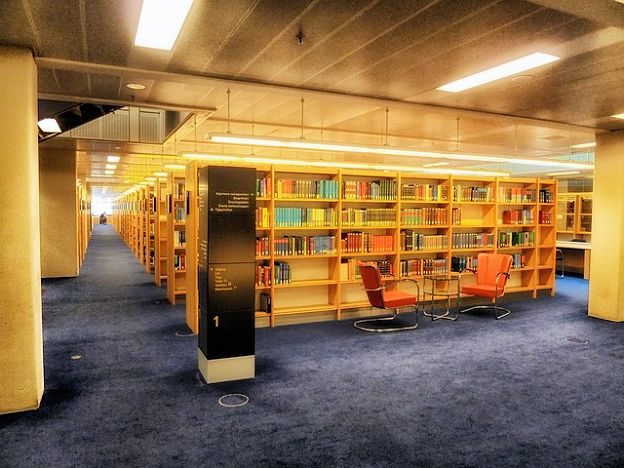
A book is like a man – clever and dull, brave and cowardly, beautiful and ugly. For every flowering thought there will be a page like a wet and mangy mongrel, and for every looping flight a tap on the wing and a reminder that wax cannot hold the feathers firm too near the sun.
John Steinbeck (1902-1968, American author)
Digressions, incontestably, are the sunshine; they are the life, the soul of reading! Take them out of this book, for instance, you might as well take the book along with them; – one cold external winter would reign in every page of it; restore them to the writer; – he steps forth like a bridegroom, – bids All-hail; brings in variety, and forbids the appetite to fail.
Laurence Sterne (1713-1768, British author)
Books, not which afford us a cowering enjoyment, but in which each thought is of unusual daring; such as an idle man cannot read, and a timid one would not be entertained by, which even make us dangerous to existing institution — such call I good books.
Henry David Thoreau (1817-1862, American essayist, poet, naturalist)
To read well, that is, to read true books in a true spirit, is a noble exercise, and one that will task the reader more than any other exercise which the customs of the day esteem. It requires a training such as the athletes underwent, the steady intention almost of the whole life to this object.
Henry David Thoreau (1817-1862, American essayist, poet, naturalist)
The Brahmins say that in their books there are many predictions of times in which it will rain. But press those books as strongly as you can, you can not get out of them a drop of water. So you can not get out of all the books that contain the best precepts the smallest good deed.
Count Leo Tolstoy (1828-1910, Russian novelist, philosopher)
There are books so alive that you’re always afraid that while you weren’t reading, the book has gone and changed, has shifted like a river; while you went on living, it went on living too, and like a river moved on and moved away. No one has stepped twice into the same river. But did anyone ever step twice into the same book?
Marina Tsvetaeva (1892-1941, Russian poet)
A big leather-bound volume makes an ideal razor strap. A thin book is useful to stick under a table with a broken caster to steady it. A large, flat atlas can be used to cover a window with a broken pane. And a thick, old-fashioned heavy book with a clasp is the finest thing in the world to throw at a noisy cat.
Mark Twain (1835-1910, American humorist, writer)
Tradition is but a meteor, which, if it once falls, cannot be rekindled. Memory, once interrupted, is not to be recalled. But written learning is a fixed luminary, which, after the cloud that had hidden it has passed away, is again bright in its proper station. So books are faithful repositories, which may be awhile neglected or forgotten, but when opened again, will again impart instruction.
Author Unknown
The books we think we ought to read are poky, dull, and dry; The books that we would like to read we are ashamed to buy; The books that people talk about we never can recall; And the books that people give us, oh, they’re the worst of all.
Carolyn Wells (1870-1942, American author)
To find out more about the importance of reading you can also read:
The nature and essence of literature
The Essence of grammar and other texts

